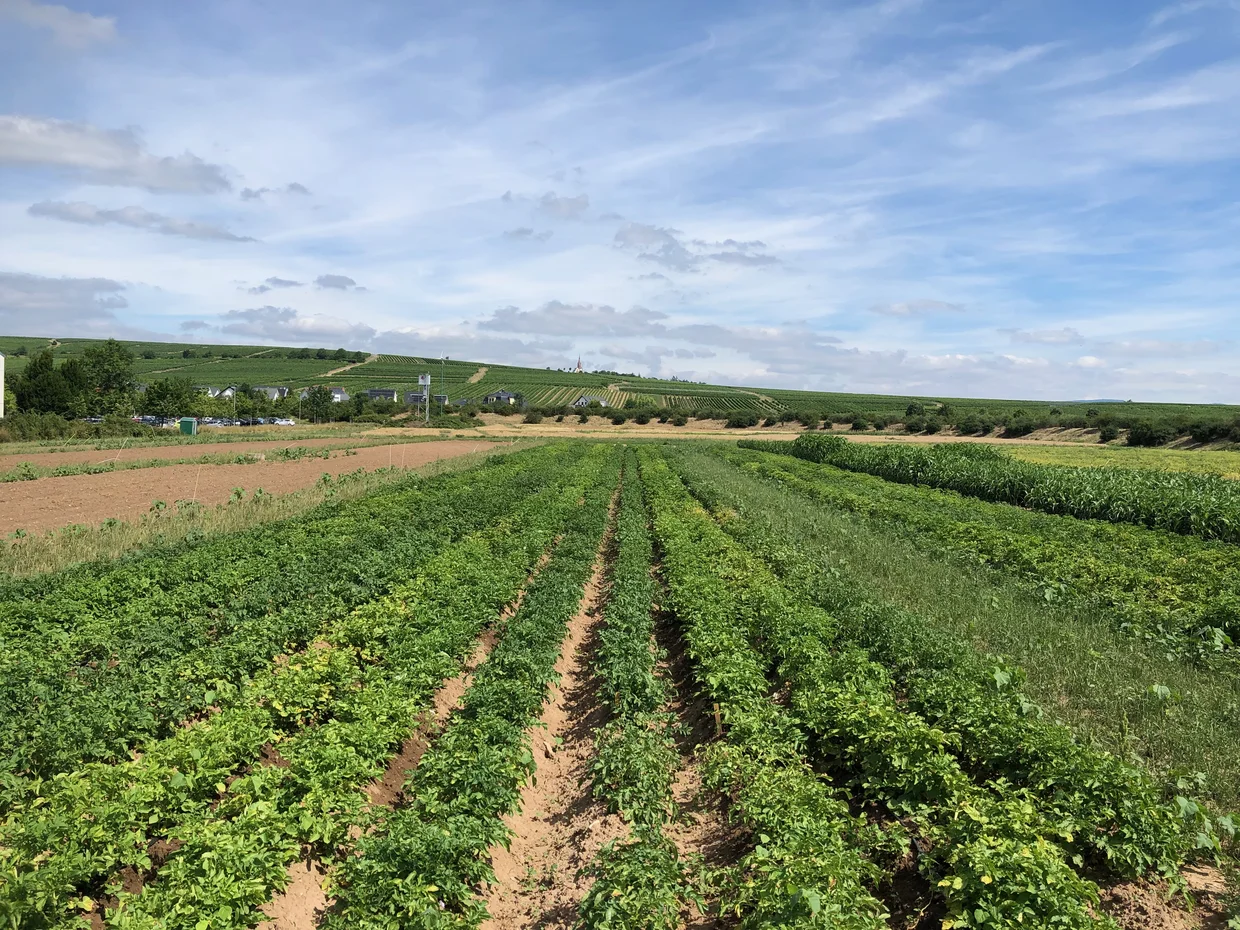Sustainable Intensification of Agricultural Production – Learning from Nature
Now accepting applications for the summer semester 2026 – taugh tentirely in English and designed especially for international students with a Bachelor's degree in agriculture or related fields.
Feeding a growing global population while protecting ecosystems is one of the most urgent global challenges. The United Nations promotes sustainable intensification as a key strategy to increase food production while preserving biodiversity, soils, water, and climate.
Our Master's program equips students with the knowledge and tools to develop innovative, nature-based solutions for productive and sustainable farming systems – especially in regions experiencing the impacts of climate change, resource scarcity, and population growth.
Your future
There is a great demand for well-trained specialists in the field of sustainable agriculture. Graduates who can flexibly adapt concepts and applications to specific requirements are more sought-after and versatile in the professional environment than specialists due to the dynamic changes taking place. The focus on applied solutions, particularly through the practical semester, is also closely aligned with the needs of potential employers.
In addition to national and international companies, potential employers for graduates include service providers, international institutions, research institutions, organisations in the field of international cooperation among other career opportunities.
- Abschluss:
- Master, Master of Science
- Regelstudienzeit:
- 4 Semester
- Studienmodell:
- Vollzeit
- Studienbeginn:
- Sommersemester, Wintersemester
- Leistungspunkte:
- 120
- Zulassungsbeschränkung:
- Nein
- Sprache:
- Englisch
Your Journey to global agri-solutions starts here - Join TH Bingen today!

Elmar Schulte genannt Geldermann
Studiengangleitung2-116
Thore Toews
Prüfungsausschussvorsitz2-112
Petra Harig
Assistenz2-122
Tanja Lehr
Sekretariat2-101

